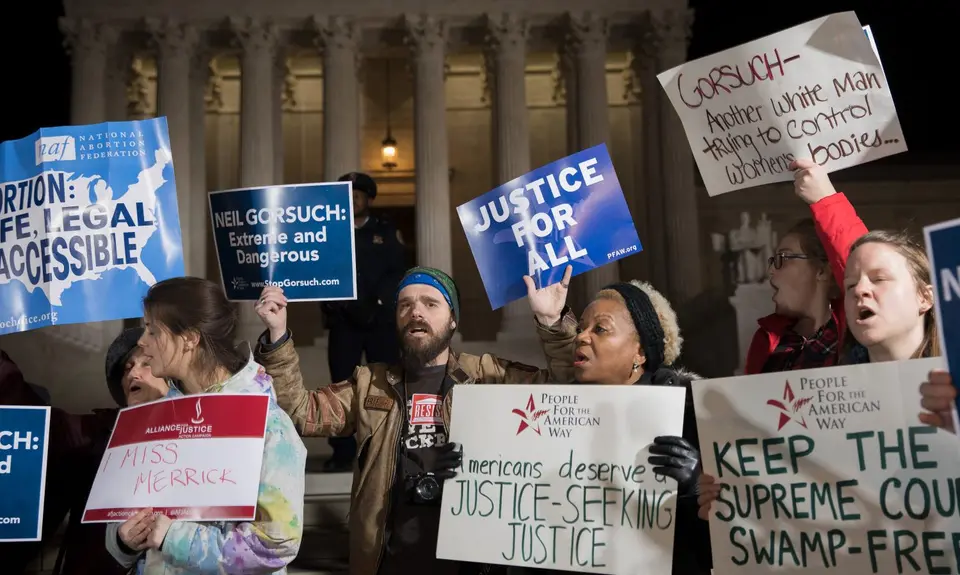Last month President Donald Trump nominated Neil Gorsuch, a judge who has dependably acted to protect the interests of big businesses at the expense of ordinary Americans, to serve as a Supreme Court justice. Judge Gorsuch’s record shows that his nomination poses a real threat to Americans’ rights. To name just a few egregious examples:
- Gorsuch ruled in the Hobby Lobby case that corporations are people and that they can use religion as an excuse to deny critical reproductive health care to their workers.
- He ruled that a police officer who used a stun gun to kill a young man who had been growing marijuana plants couldn’t be sued for “excessive force.”
- In what has been called the “freezing trucker” case, in which a truck driver whose vehicle broke down in subzero temperatures was fired after he left to seek help, Gorsuch sided with the corporation rather than the driver.
Judge Gorsuch has done nothing to show that our fundamental rights and liberties would be safe in his hands. And with a new president who seems bent on undermining those rights at a breakneck speed, it is critical that our Supreme Court justices understand that the Constitution is there to safeguard the rights of everyday Americans, not just powerful corporations.
As progressive activists, we can do more than worry about the future of our rights and the direction of the Supreme Court. We can take action to made sure that a Supreme Court nominee like Judge Gorsuch, who puts his own ideology above the Constitution, is not confirmed to our nation’s most important court.
Here are six things you can do:
1. Call your senators at 202-224-3121.
Calling your senators really does make a difference—just look at the recent example of the GOP’s scrapped plan to gut the Office of Congressional Ethics after a flood of calls from angry constituents. For your call about Judge Gorsuch, we even have a handy script you can use.
2. Ask your friends to make calls, too.
The impact of your call is compounded with each additional friend or family member who also decides to make a call. Advocacy is contagious: mentioning to your friends that you reached out to your senator encourages them to do the same. Plus, it shows our elected representatives that we are paying attention, staying engaged, and ready to hold them accountable.
3. Write a letter to the editor.
Once you’ve made a call, you already know the main points you want to tell your senator. You can use that to write a short letter to the editor for your local paper. Letters don’t have to be lengthy treatises you’ve poured many hours into writing—they can be a few, clear sentences on why you believe Judge Gorsuch should not sit on the Supreme Court. Senators pay attention to what their constituents are writing about them in their state’s papers, so publishing a letter is an effective way to get your message directly to your elected official.
4. Sign the petition at StopGorsuch.com.
Adding your name to a petition opposing Judge Gorsuch’s nomination shows our strength in numbers and helps energize the movement to protect our courts—and it only takes 30 seconds.
5. Join a group fighting against Judge Gorsuch’s confirmation.
Organizations like People For the American Way are researching and organizing around Judge Gorsuch’s nomination every day. Becoming a member of a group focused on this fight helps sustain this work and ensure that the progressive movement has the information, support, and resources it needs to lead this charge.
6. Share this graphic.
You can engage in digital organizing by spreading the word online—starting with the graphic below.
The past few weeks have featured one outrage after another, from the anti-Muslim executive order to the attorney general fight to the Supreme Court nomination. But they have also featured massive resistance from ordinary people and put on display the true power of grassroots advocacy—as well as the importance of our courts in resisting Trump’s attacks. Speaking out today about the Supreme Court fight is critical to protecting our fundamental rights and liberties for years, or generations, to come.
